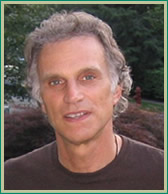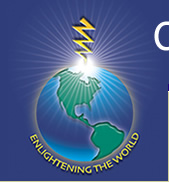
My North Star: A Sense of Purpose
|
 |
|
| Adam Sokolow Senior Advisor |
The North Star that enables me to keep my bearings during these turbulent times is my sense of purpose: that I am actively helping to bring about a positive future. At the core of my worldview is my conviction that all of us possess an inherent potential to heal ourselves from the self-inflicted wounds that arise out of our personal and collective ignorance.
The Buddha said as much more than 2,500 years ago, and his words are as relevant now as they were then. After attaining enlightenment, which means that he gained profound insight into the way things really are, he made four progressive statements known as the Four Noble Truths. His First Noble Truth has been erroneously translated as “Life is suffering.” He actually used the word “Dukha”— which means “obstruction”—to describe our situation. So a more accurate translation of the First Noble Truth would be: “We experience dis-ease because what we desire in life is often obstructed.” Thus, rather than being a negative philosophical pronouncement about life in general (life equals suffering), as is often claimed, the Buddha’s first statement is more the pronouncement of a doctor who begins to try to heal us by describing the clinical syndrome of the spiritual illness that is obstructing our natural state of good health.
The Buddha then elaborates that we can be obstructed by three general categories: environmental, social, and personal. The environmental causes of obstruction include such things as not having available resources and opportunities, being caught up in a natural disaster, and so on. We can also be obstructed by other people due to competing agendas, greed, and so forth. While these two categories may be unavoidable, however, even more fundamental and injurious to our welfare is that we habitually obstruct ourselves by holding onto negative states of mind. Like a skilled doctor, the Buddha presents us with his Second Noble Truth, his diagnosis as to the root cause of all our dis-ease: ignorance. We cling to false notions about ourselves and the world in which we live.
The Third Noble Truth really embodies the very core of what the Buddha taught. In his first two statements, he focused primarily on the negative side of life: our illness (obstruction) and its cause (ignorance). In contrast, his Third Noble Truth is extremely positive. He said that, as we progressively overcome our ignorance (through increased awareness), we will become more at ease and regain our inherent good health (we are naturally vital, wise, and loving) and in time will come to recognize clearly who we really are (a spiritually enlightened being).
Since the Buddha was a practical healer, helping us to recover from our spiritual malaise, of course he offers us a treatment plan, which is his Fourth Noble Truth. Here he says, in essence, we should strive to be joyfully present by adopting a healthy lifestyle (the Eightfold Path), and practice moderation within the balanced range between all extremes (the middle way).
Therefore, if you’re feeling obstructed, there are many things that you can do to improve your circumstances: learn more about nutrition and start eating a healthier diet; set aside some time during the day to get some exercise; and understand that most people are feeling pressed right now, so be a little bit more generous with whatever you have to offer to help put a smile on someone else’s face.
![]()
Center for Empowered Leadership ®
Email: info@cfel.org
Phone: 1.609.259.7911
